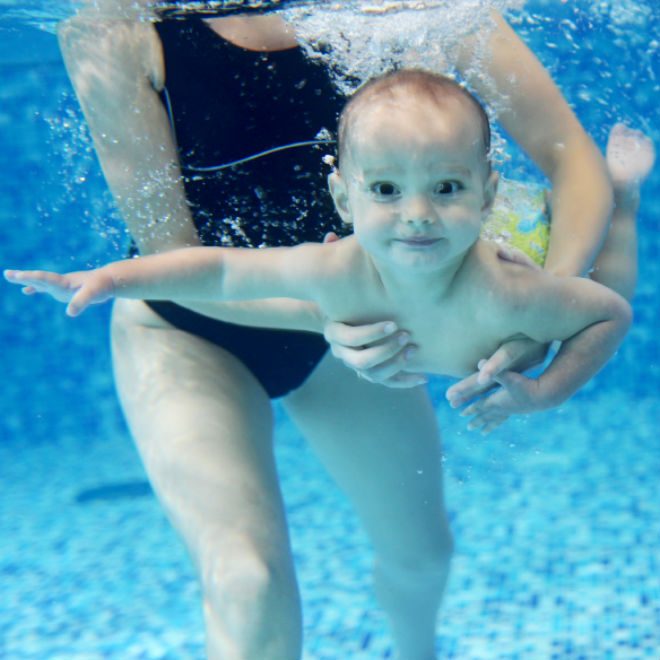Swimming is a lifesaving skill. It is fantastic exercise that strengthens the lungs and gives them more power. It also is a fun activity and a great way to get outdoors and make new friends.
If you are a lucky parent, you will have a child who loves water; a child who is looking forward to learning how to swim and takes to the water like the proverbial fish.
But what if you are not that lucky? What if yours is the one child in a class of twenty who refuses to get into the pool? What if yours is the one child who is howling before every class? Should you force your child to swim? Or should you just give up? The answer to both those questions is NO.
Your child will learn how to swim when he/she learns how to control and regulate breathing. A frightened child will find it impossible to learn how to swim because when a child is afraid – the first thing he / she will lose control over is – breath.
Here are a few tips to reduce the fear factor in your child:
1) Respect your child’s fear
Never say – “Oh! There is nothing to be scared of”. A pool full of water that looks inviting and beautiful to you can look like an ocean to a little child.
2) Do not rush your child.
Being in the water is a new sensation that the body needs to get used to. Allow your child to proceed slowly and realize that water is not threatening. There are children who need to first just be splashed with water, then gradually dip their feet in and then move to putting their heads under water for a few seconds.
These children eventually do learn how to swim. Fifteen day deadlines that typical swimming classes set do not work for all children.
Never allow your child to be taken to the deep end perforce. And never allow your child to be thrown in at the deep end with the mistaken notion that children learn to swim when they are in deep water. A frightened child will open his/her mouth to gulp in air and end up gulping water instead. The sensation of drowning that this causes will terrify your child and destroy his/her confidence. Instead allow your child as much time as he/she requires in the shallow area of the pool to gain confidence. Stay away from overzealous arrogant instructors.
4) Let the ball be in your child’s court
Always give your child the choice to proceed to the next step or go back one step as he or she chooses. Never prevent a child from leaving the pool if he/she wants. There are days when children are very tired days when they find the water too cold or days when they are just not in the mood. Compelling children to undertake a challenge they do not feel they can tackle at that moment – can ruin the confidence they have built so far.
5) Encourage
As difficult as it may be to believe it every child wants to learn how to swim. Encouraging your child to persist in his/her effort to learn how to swim is the one thing that your child needs from you.






















